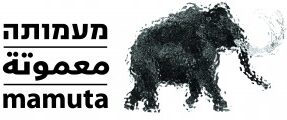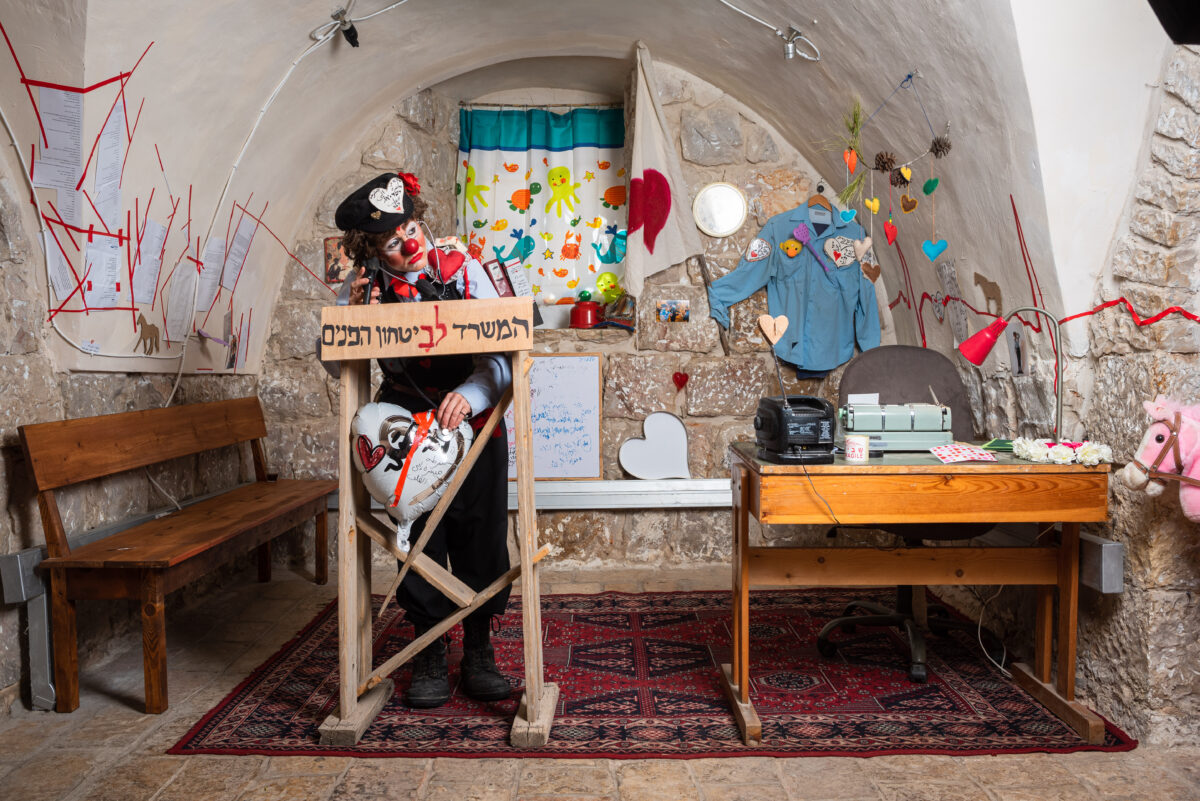Officer Az-Oolay
Curator: Sala-Manca
11.03.22 - 27.05.22
The Coronavirus pandemic has forced performance artists around the world to adapt to a new reality. Unable to appear in their usual performance spaces in theaters and galleries, many of them have been pushed to explore new models and different ways of performance that enabled the physical presence of performers and audience in the same space – a necessary condition for the creation of live performance. One alternative was to perform at one of the only spaces in which public gatherings were allowed during the lockdowns: public demonstrations. In Israel, the beginning of the pandemic coincided with a complex political time. Four rounds of elections in just two years had not succeeded in creating a stable government, and the prime minister, Benjamin Netanyahu, was to be put on trial for bribery and fraud. This volatile mixture of the public’s right to protest political corruption and the prohibition on gatherings brought about a weekly protest on Balfour Street in Jerusalem, across from the prime minister’s official residence. At these demonstrations, protestors were met by police officers who used increasingly violent methods against them. Not surprisingly, these protests became a creative space for many artists. Enter Officer Az-Oolay (“then may be” – in Hebrew”, the lone officer of the Yashar-el Ha-Lev (Straight to the Heart, in Hebrew) police force.
Officer Az-Oolay – wearing a wrinkled blue uniform, a flower garlanded police hat, a red clown’s nose, and armed with a spray bottle of “love water” and heart stickers for sticking on people’s foreheads – was an inversion of the threatening-looking soldiers and police officers who came in the name of authority and maintaining the public order. The artist chose her character’s name carefully: first name “Az-Oolay”, last name “Yehiye Yoter Tov”. Together, translated to English: “Then Maybe Things Will Be Better.” In her actions she embodies the belief that reality can be interpreted and experienced differently, and in this way the wounded space in which we live can become a better, more healthy, place. After Netanyahu’s defeat, Officer Az-Oolay began coming to demonstrations in other hot spots, and even to the tensest place in East Jerusalem in the last months, Sheikh Jarrah.
Officer Az-Oolay uses humor, naïveté, and the creation of an open and seemingly innocent dialogue as instruments of change. The lone officer-clown holds up an inverted mirror to bodies like the police, the army, and bands of citizens who oppose equal rights, trying to break down the repressed power that they represent. The clown ushers in a new political imagination, moments of mercy and healing, and the opportunity to ask questions about the consensus, the unbridled use of power, and the place of the individual within a hierarchical collective order.
The project was conceived by Sala-Manca group, who invited Officer Az-Oolay to create a temporary station of the Yashar-El Ha-Lev Police at the Underground Academy, one of the research institutes at the Mamuta Art and Research Center. Over the course of two months, she will run an underground police academy where she will share the techniques and tactics she has developed over the course of a year and a half of performance-activism: deep listening, sticking of heart stickers, dialogue in place of confrontation, and more. The academy will include screening of visual documentation of her activity as well as a series of activities and shows based on Officer Az-Oolay’s actions and experiences in the tense Jerusalem context, including her own arrest by the Israel Police.
The four gallery spaces of the Underground Academy become the four chambers of the heart, the officer’s playground, giving audiences the chance to momentarily experience the beauty of imperfection, to try their hand at tactics of a different order and to be part of the humble attempt to talk straight to people’s hearts.
Mamuta Art and Research Center
Artistic and general direction: Sala-Manca| Assistant curator and projects manager: Gali Katsir | Producer Assistant: Naama Mokady | Technical and exhibitions set up: Eytan Habib | Text editing: Inbal Keidar | Arabic translation: Nagham Abuleil | English translation: Tamar Cohen | Graphic design: Maya Schleifer | Sound consultation: Amir Bolzman | Featured image: Yair Meyuhas
The show is possible thanks to the support of the Ministry of Culture, The Jerusalem Municipality and the Tank Theater.






Exhibition events:
There are no upcoming events at this time
No related events found.

